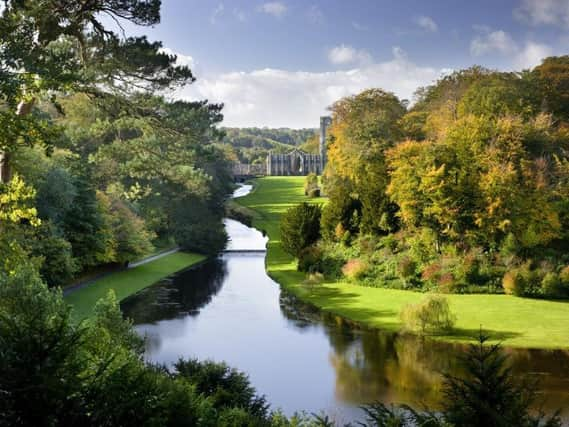Fountains Abbey given £1.4million grant to prevent flooding of the River Skell caused by climate change


UNESCO World Heritage Site Fountains Abbey, near Ripon, which is in the Skell Valley, is at risk of being “irreparably damaged” by flooding, with several instances in recent years when the 12th-century ruins and water garden have been affected by water.
The Skell Valley Scheme, which has received the funding from the National Heritage Lottery Fund, aims to rejuvenate 12 miles of the River Skell and is spearheaded by the National Trust which manages Fountains Abbey and Nidderdale Area of Outstanding Natural Beauty, through which the river flows. The aim of the project is to improve the landscape’s resilience to climate change, boost the local economy and increase people’s access to green space following the pandemic.
Advertisement
Hide AdAdvertisement
Hide Ad“Through the Skell Valley Project, we’ll be able to trial innovative approaches to pressing issues such as flooding, land management and climate change,” said Nidderdale AONB’s Coun Nigel Simms.
“We’ll work closely with local farmers and landowners across the Skell Valley to put in place nature-based solutions that will reduce flooding and improve biodiversity in and around the river.”
A spokesman for the National Trust said the Skell’s catchment area is at high risk of flooding and in 2007 a “significant flood” affected the archeology of Fountains Abbey, the “globally important” water garden of Studley Royal and downstream in Ripon.
They added that despite efforts to tackle the effects of extreme weather, flooding and silt-build up continue to threaten the valley’s heritage and ecology.
Advertisement
Hide AdAdvertisement
Hide AdFunded by the grant, along with others from sources including the European Regional Development Fund, the four year Skell Valley Scheme, which will involve local partners, landowners, farmers and volunteer groups, is estimated to cost £2.5m.
Efforts to alleviate the flood risk will include tree planting, meadow creation and new ponds which will reduce soil run-off and slow the flow of water.
Farmers will also be rewarded for delivering conservation measures and it is hoped the improvements will lead to an increase in rare species such as curlew, white-clawed crayfish and golden plover.
Harry Bowell, director of land and nature at the National Trust, described the project as “a significant marker” in the history of the valley and an important moment for the Trust.
Advertisement
Hide AdAdvertisement
Hide Ad“Climate change is eroding away nature and heritage and only by working across our boundaries, with local people and partners, and with nature, will we be able to make a real difference.”
The project will also open up the wider Skell Valley for people to enjoy and offer local communities the opportunity to learn conservation skills.
“We’re incredibly grateful to The National Lottery Heritage Fund,” Mr Bowell said.
“It’s fantastic to have their support, especially at a time when local economies have been hit so badly by the pandemic and access to green space has never felt more urgent.”